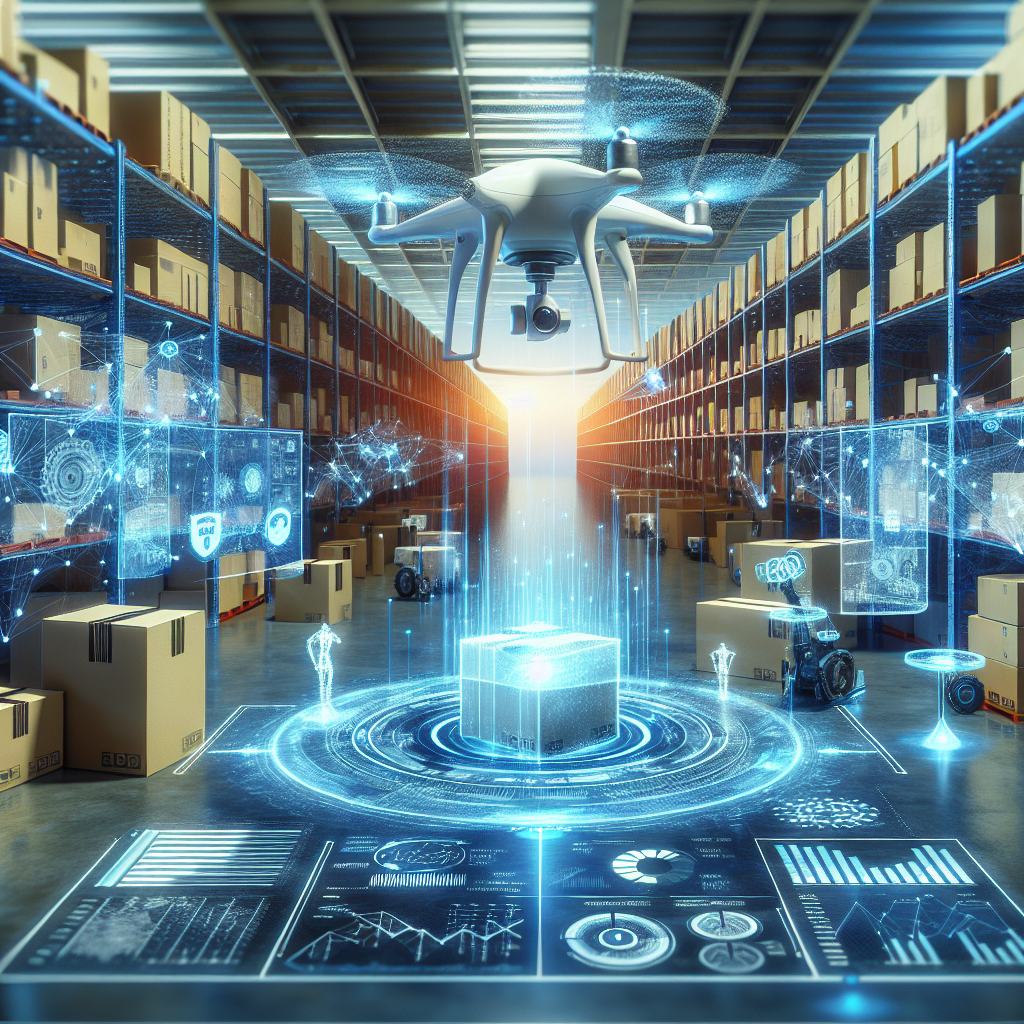In today’s fast-paced and constantly evolving business landscape, supply chain optimization has become a critical factor for success. Companies are constantly looking for ways to streamline their operations, reduce costs, and improve efficiency in order to stay competitive. One of the most effective tools that companies can leverage to achieve these goals is artificial intelligence (AI) integration.
AI technology has the ability to analyze vast amounts of data in real-time, identify patterns and trends, and make recommendations for optimization. When applied to supply chain management, AI can help companies make more informed decisions, improve forecasting accuracy, enhance inventory management, and streamline logistics processes. By leveraging AI integration for supply chain optimization, companies can gain a competitive edge and drive significant cost savings.
One of the key benefits of AI integration for supply chain optimization is improved demand forecasting. Traditional forecasting methods often rely on historical data and manual input, which can lead to inaccuracies and inefficiencies. AI technology, on the other hand, can analyze a wide range of data sources, including customer behavior, market trends, and external factors such as weather patterns, to provide more accurate and timely demand forecasts. This can help companies better anticipate fluctuations in demand, reduce excess inventory, and minimize stockouts.
AI integration can also help companies improve inventory management by optimizing stock levels and replenishment processes. By analyzing historical sales data, current inventory levels, and lead times, AI algorithms can determine the optimal inventory levels for each product and location. This can help companies reduce carrying costs, minimize stockouts, and improve overall inventory turnover. AI technology can also automate the replenishment process, triggering orders when stock levels reach a certain threshold, and optimizing delivery schedules to minimize costs.
Another area where AI integration can drive significant supply chain optimization is in transportation and logistics management. AI algorithms can analyze routes, traffic patterns, carrier performance, and other factors to optimize transportation networks and reduce shipping costs. By identifying the most efficient routes and modes of transport, companies can minimize transit times, reduce fuel consumption, and improve overall supply chain efficiency. AI technology can also help companies optimize warehouse operations by determining the most efficient layout, picking routes, and storage locations, and improving order fulfillment processes.
In addition to improving operational efficiency, AI integration can also enhance supply chain visibility and transparency. By analyzing real-time data from sensors, RFID tags, and other sources, AI technology can provide companies with a comprehensive view of their supply chain operations. This can help companies identify bottlenecks, track the movement of goods in real-time, and proactively address issues before they escalate. Improved visibility can also help companies better collaborate with suppliers, partners, and customers, leading to a more agile and responsive supply chain.
Despite the numerous benefits of AI integration for supply chain optimization, implementing AI technology can be challenging for many companies. Some common challenges include data quality issues, lack of expertise, and difficulty integrating AI systems with existing IT infrastructure. To overcome these challenges, companies should start by building a solid foundation of clean, reliable data and investing in training and development programs to build AI expertise within their organization. Companies should also work closely with AI vendors and technology partners to ensure seamless integration with existing systems and processes.
In conclusion, leveraging AI integration for supply chain optimization can help companies improve demand forecasting, inventory management, transportation logistics, and overall supply chain visibility. By harnessing the power of AI technology, companies can gain a competitive edge, drive cost savings, and enhance operational efficiency. While implementing AI technology may present challenges, companies that invest in AI integration for supply chain optimization stand to reap significant rewards in the form of improved performance, increased customer satisfaction, and sustained competitive advantage.
FAQs:
1. What is AI integration for supply chain optimization?
AI integration for supply chain optimization involves leveraging artificial intelligence technology to analyze data, identify patterns and trends, and make recommendations for improving supply chain operations. AI technology can help companies improve demand forecasting, inventory management, transportation logistics, and overall supply chain visibility.
2. What are the benefits of AI integration for supply chain optimization?
Some of the key benefits of AI integration for supply chain optimization include improved demand forecasting accuracy, enhanced inventory management, optimized transportation logistics, and increased supply chain visibility and transparency. AI technology can help companies drive cost savings, improve operational efficiency, and gain a competitive edge in today’s fast-paced business environment.
3. What are some common challenges of implementing AI integration for supply chain optimization?
Some common challenges of implementing AI integration for supply chain optimization include data quality issues, lack of expertise, and difficulty integrating AI systems with existing IT infrastructure. Companies should address these challenges by building a solid foundation of clean, reliable data, investing in training and development programs, and working closely with AI vendors and technology partners.
4. How can companies overcome challenges when implementing AI integration for supply chain optimization?
Companies can overcome challenges when implementing AI integration for supply chain optimization by building a solid foundation of clean, reliable data, investing in training and development programs to build AI expertise within their organization, and working closely with AI vendors and technology partners to ensure seamless integration with existing systems and processes. By addressing these challenges proactively, companies can maximize the benefits of AI technology for supply chain optimization.

